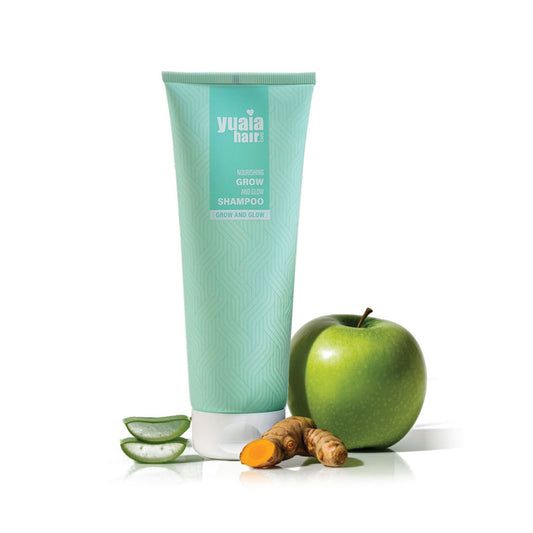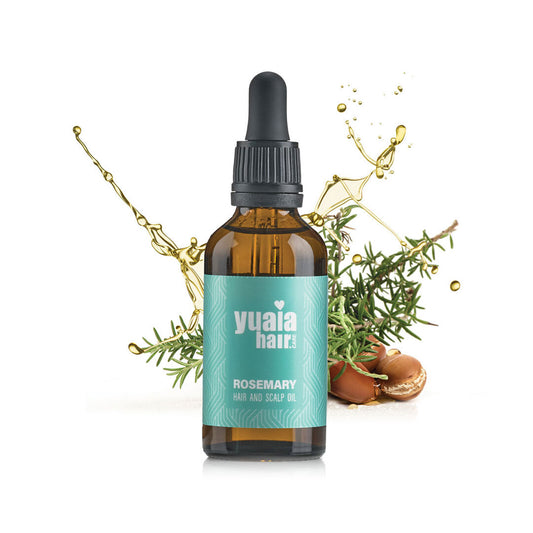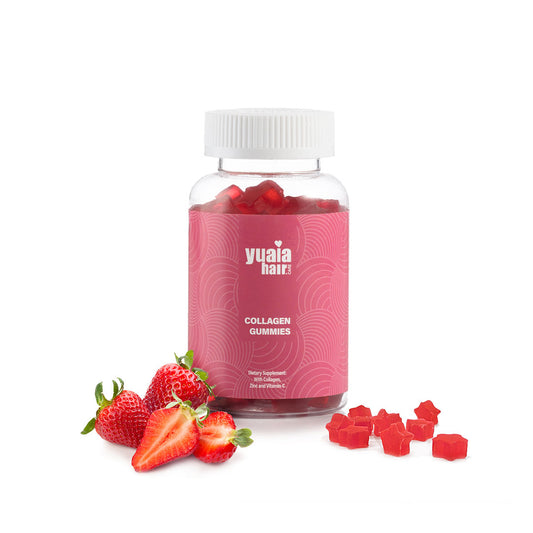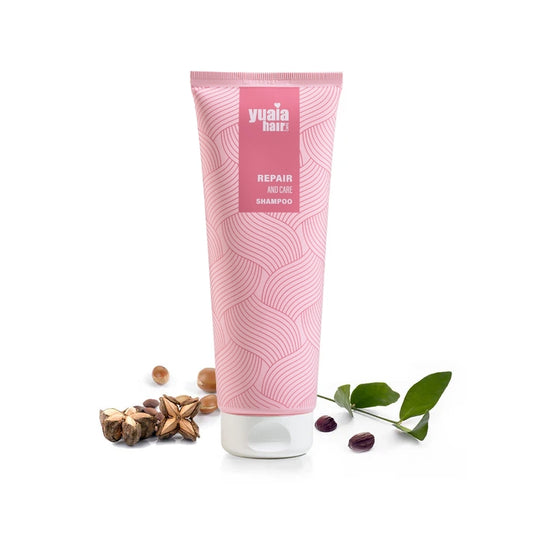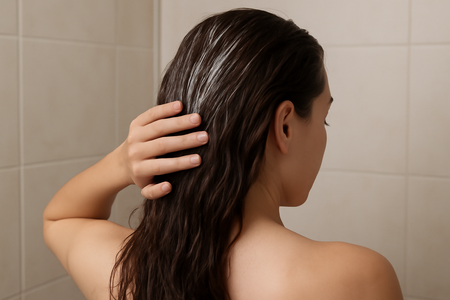
How to stop hair fall immediately at home: Quick remedies for rapid results

by Nanna Bundgaard | 05. August 2025 | Reading time: 6 minutes
Read more about the authorHair fall can be a distressing issue, especially when it occurs suddenly and unexpectedly. The urgency to find immediate solutions is understandable, as hair plays a significant role in our self-esteem and overall appearance. Whether it's due to stress, dietary changes, or environmental factors, sudden hair fall can leave many searching for quick remedies to tackle the problem head-on.
Why does hair fall occur?
Several factors can contribute to sudden hair fall, including hormonal imbalances, stress, nutritional deficiencies, and certain medical conditions. While these causes can vary, the impact of losing hair can be universally unsettling. Understanding these potential triggers is the first step in addressing the problem effectively.
What are the quick remedies for hair fall at home?
This blog post aims to provide you with practical, at-home remedies that can be implemented swiftly to help reduce hair fall. By leveraging natural ingredients and simple techniques, these remedies offer a convenient and accessible way to address hair fall without the need for costly treatments or professional interventions.
- DIY hair masks: Utilizing common kitchen staples, such as eggs and olive oil, can create nourishing hair masks. A simple recipe involves mixing one egg with two tablespoons of olive oil. Apply this mixture to your hair, leave it on for 25 minutes, and rinse with a mild shampoo to help strengthen hair and reduce fall.
- Coconut oil scalp massage: Warm coconut oil massages are a traditional remedy known to strengthen hair roots and promote growth. Gently massage warm coconut oil into your scalp in circular motions to improve blood circulation and hair health.
- Onion juice application: Rich in sulfur, onion juice is touted for its potential to aid hair regrowth. Although the strong odor can be off-putting, rinsing with a fragrant shampoo afterward can help manage it.
Incorporating these quick remedies into your routine can provide a natural and effective approach to managing hair fall at home. For those looking to complement these methods with gentle hair care products, consider using our Grow and Glow Shampoo for thinning or fine hair, which can help maintain healthy hair with its sulfate-free formulation.
Scalp massage and essential oils
Scalp massages are a simple yet effective way to potentially reduce hair fall. By stimulating blood circulation, these massages can help nourish hair follicles and promote healthier growth. To perform a scalp massage, use your fingertips to gently apply pressure in circular motions across your scalp. This practice not only helps in enhancing blood flow but also provides a relaxing experience that can alleviate stress, a common contributor to hair fall.
Incorporating essential oils into your scalp massage routine can amplify its benefits. Rosemary oil is particularly noted for its potential to block hair loss hormones and support regrowth. To use, mix a few drops of rosemary oil with a carrier oil like coconut or jojoba oil to avoid irritation. Massage this blend into your scalp and leave it on for at least an hour before washing it out. This method can be a soothing way to nurture your hair while enjoying the aromatic benefits of essential oils.
Dietary considerations for hair health
While topical treatments play a significant role in managing hair fall, dietary intake is equally important. Ensuring a balanced diet rich in protein and iron can support overall hair health. Foods like eggs, nuts, and lean meats are excellent sources of protein, which is vital for hair strength and growth. Iron, found in leafy greens and red meat, helps maintain normal hair by supporting proper oxygenation of hair follicles.
Although supplements can be part of a comprehensive approach, it's crucial to focus on a well-rounded diet to naturally support hair health. Remember, a healthy diet supports hair health, contributing to stronger, more resilient hair.
Managing expectations and consistency
When it comes to addressing hair fall, it's important to set realistic expectations. Home remedies, while effective for many, require consistent application over time to yield noticeable results. Regular use of treatments like scalp massages, essential oils, and dietary adjustments is key to managing hair fall effectively.
For those seeking to complement their routine with gentle hair care products, consider our Repair and Care Shampoo. Its gentle formulation can aid in nourishing dry or damaged hair, supporting the effects of your home remedies.
Incorporating these practices into your hair care routine can help you manage hair fall at home, fostering healthier hair over time. Consistency is crucial, as the benefits of these natural remedies accumulate with regular use.
When to seek professional help
While home remedies can be effective for many, it's important to recognize when hair fall might be a sign of a more serious issue. If you notice excessive shedding, bald patches, or if your hair fall persists despite consistent use of home treatments, it may be time to consult a healthcare professional. They can help determine if there's an underlying medical condition contributing to your hair loss and suggest appropriate treatments.
Additionally, it's important to be aware of any allergies or sensitivities you might have to natural ingredients. Before trying any new remedy, consider performing a patch test to ensure you don't experience adverse reactions. This is especially significant when using potent ingredients like essential oils or onion juice.
FAQs
What should I do if home remedies don’t work?
If you find that home remedies are not providing the desired results, consider consulting a dermatologist. They can offer insights into the underlying causes of your hair fall and recommend treatments that may be more effective for your specific situation.
How often should I use these remedies?
The frequency of using home remedies can vary based on the type of treatment. Generally, hair masks can be applied once a week, while scalp massages with oils can be done 2-3 times a week. Consistency is key to achieving better results over time.
Can diet alone stop hair fall?
While a balanced diet is important for maintaining normal hair, it is just one aspect of a holistic approach to hair health. Combining a nutritious diet with topical treatments and proper hair care can provide the best results in managing hair fall.
Remember, addressing hair fall requires a multi-faceted approach. By combining home remedies with professional guidance when necessary, you can effectively manage and reduce hair fall, promoting healthier hair in the long run.
Get a 10% discount code sent to you
Receive the best tips and tricks for your hair from Lotte and Nanna 🥰
 2-5 day delivery
2-5 day delivery
 25.000+ satisfied customers
25.000+ satisfied customers
 Satisfaction Guarantee
Satisfaction Guarantee


















